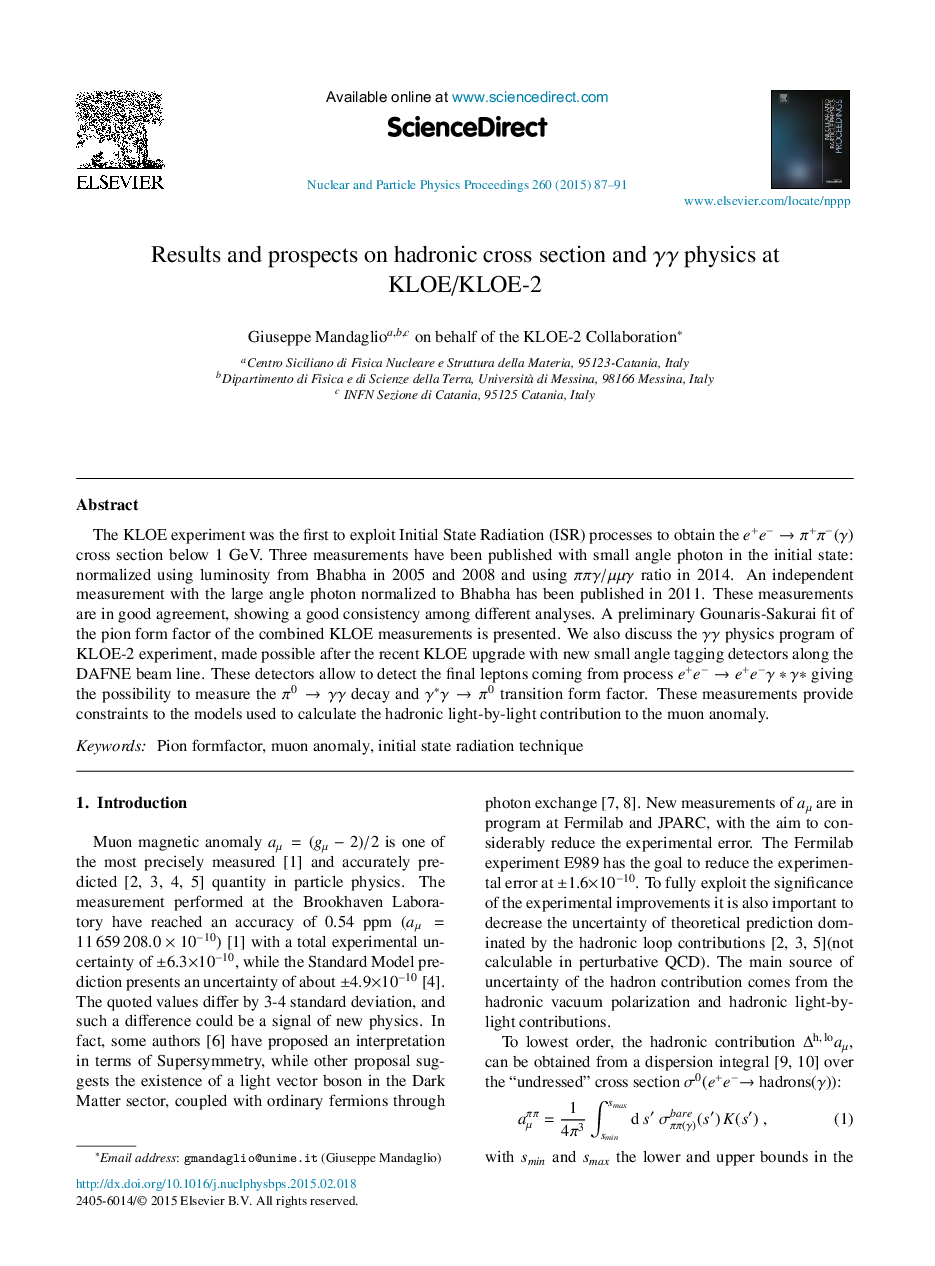| کد مقاله | کد نشریه | سال انتشار | مقاله انگلیسی | نسخه تمام متن |
|---|---|---|---|---|
| 1835270 | 1526778 | 2015 | 5 صفحه PDF | دانلود رایگان |

The KLOE experiment was the first to exploit Initial State Radiation (ISR) processes to obtain the e+e−→π+π−(γ) cross section below 1 GeV. Three measurements have been published with small angle photon in the initial state: normalized using luminosity from Bhabha in 2005 and 2008 and using ππγ/μμγ ratio in 2014. An independent measurement with the large angle photon normalized to Bhabha has been published in 2011. These measurements are in good agreement, showing a good consistency among different analyses. A preliminary Gounaris-Sakurai fit of the pion form factor of the combined KLOE measurements is presented. We also discuss the γγ physics program of KLOE-2 experiment, made possible after the recent KLOE upgrade with new small angle tagging detectors along the DAFNE beam line. These detectors allow to detect the final leptons coming from process e+e−→e+e−γ⁎γ⁎ giving the possibility to measure the π0→γγ decay and γ⁎γ→π0 transition form factor. These measurements provide constraints to the models used to calculate the hadronic light-by-light contribution to the muon anomaly.
Journal: Nuclear and Particle Physics Proceedings - Volume 260, March 2015, Pages 87-91